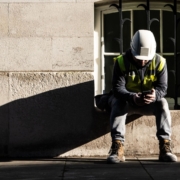The electrification of everything is here. More and more vehicles are shifting to electricity and letting go of fossil fuel-based energy. For the electrical industry, this is exciting news! Converting non-electric energy sources to electricity means more jobs and growth opportunities.
States like Oregon are doubling down on their promises to promote cleaner energy. Part of the Oregon Department of Transportation’s (ODOT) long-range plan is to have 100% percent of new cars sold be emission-free and increase charging ports by 4,712% by 2035. ODOT has also allocated $52 million over the next five years to install charging ports across Oregon.
How could the electric vehicle movement affect you and your professional growth? Learn more below.
The Evolution of Electric Vehicles
In 2023, fully electric and plug-in hybrid cars saw a 35% jump in sales compared to 2022. Why the increased interest? Today’s consumers want to reduce gas expenses and help combat greenhouse gases. Plus, federal and state government incentives have advanced EV investment, infrastructure, and manufacturing.
This accelerated market growth has lasting impacts on the electrical industry. EV charging station installation and maintenance needs will grow in the coming years. This means workers and contractors have opportunities to prioritize learning new technologies today.

How Electric Industry Professionals are Preparing for the EV Trend
With massive growth on the horizon, electrical contractors and tradespeople are upping their education and skills to get ready for an EV future.
As more consumers buy EVs, there will be more demand for in-home charging stations and public ports. The Bipartisan Infrastructure Law allocates $75 billion toward EV infrastructure and plans to install 500,000 public ports by 2023. 
The Electric Vehicle Infrastructure Training Program (EVITP) offers North America’s most comprehensive electrical vehicle supply equipment (EVSE) training. Eligibility requires state electrician licensure or certification. The NECA-IBEW training center gives members access to cutting-edge continuing education. For instance, members can complete the EVITP certification via a 20-24 hour online course, and upon completion, the NECA-IBEW Local 48 partnership will provide reimbursement to its members.
Unlock Educational Paths Through Membership
Unions are committed to fostering innovation within the industry’s workforce. Members receive relevant educational resources to help expand their career goals.
- NECA: NECA provides a variety of specialized educational programs covering electrical construction, safety, project management,and emerging technologies, as well as business and professional development. This commitment empowers business owners and electrical professionals to excel, stay updated, and serve clients better.
- IBEW: IBEW provides diverse educational programs covering electrical installation, safety, advanced technology training, and more. Their commitment empowers members for career success and staying updated in the industry, benefiting their communities.
Discover the Difference Membership Can Make
The NECA–IBEW Local 48 partnership provides real-world training and education access so you can stay current with industry advancements.
Check out our membership page to learn about joining, benefits, and more.




 rankings when compared to other professions in the U.S. In addition, numerous veterans are drawn to careers in construction due to their mission-driven approach. Sadly, they also confront a heightened risk of suicide, with an
rankings when compared to other professions in the U.S. In addition, numerous veterans are drawn to careers in construction due to their mission-driven approach. Sadly, they also confront a heightened risk of suicide, with an  a supportive environment. Not only will it keep our robust workforce healthy and happy, but it will also ease tensions felt by management, such as retaining a skilled labor pool.
a supportive environment. Not only will it keep our robust workforce healthy and happy, but it will also ease tensions felt by management, such as retaining a skilled labor pool.